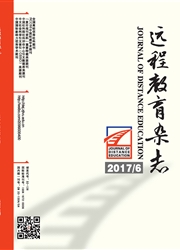

 中文摘要:
中文摘要:
在以不确定性和不断变革为本质特征的知识社会,拥有能够使自己在新情境中学习和解决问题的知识比掌握已有的事实性知识、程序和技能更有价值。这种更有价值的知识就是近年来在学习科学领域受到日益关注的"适应性专长",它被认为是面向知识社会的每个领域的学习者都值得追求的目标。从概念界定的角度,适应性专长可以理解为适应性专家所表现出的区别于常规专家的知识、技能和倾向,它通常表现为深度的概念性理解、在新情境中的适应性改变、学习新知乃至创建新知的倾向以及元认知行为,"为新学习做准备"是它的核心内涵。而聚焦渐进式的、挑战性的复杂问题解决,是发展适应性专长的若干可行路径之一。此外,教师承担着使自己和学生都发展成为适应性专家的双重责任。
 英文摘要:
英文摘要:
In the fast-changing knowledge-based society, acquiring the knowledge that will enable learners to learn new knowledge and solve non-routine problems in new situations would be preferred to acquiring the existing factual knowledge, procedures and skills. The former knowledge has been termed as adaptive expertise and has been attracted more and more interests of the learning scientists. Adaptive expertise is also regarded as a valuable learning goal for each learner in the knowledge-based society. This article attempted to give its own definition of adaptive expertise as ‘the knowledge, skills and tendency that distinguish adaptive experts from routine experts. It is often characterized by deep conceptual understanding, adaptive change to new situations, tendency to learning and knowledge constructing, and behavior of metacognition’, stated that ‘preparation for future learning’ is the true inner meaning of adaptive expertise, and figured out that one of the potential ways to develop adaptive expertise is progressive, challenge, and complex problem solving. Finally, this article analyzed the double missions of teachers for the development of adaptive expertise in the knowledge-based society.
 同期刊论文项目
同期刊论文项目
 同项目期刊论文
同项目期刊论文
 期刊信息
期刊信息
